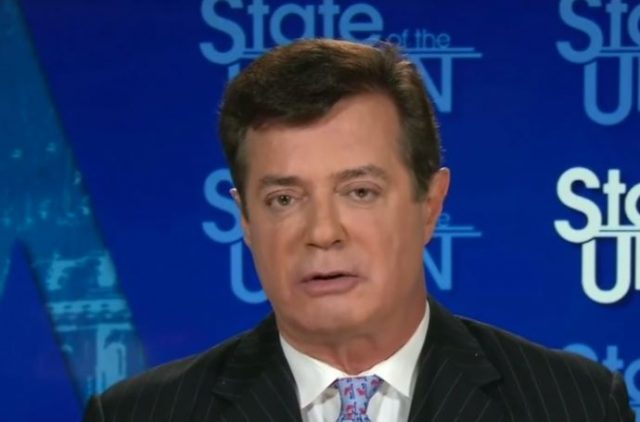 The FBI search of the home of former Donald Trump campaign manager Paul Manafort has drawn more than attention since reports of it came out this week. Now it’s drawing legal criticism from one of Trump’s own attorneys, John Dowd. Fox News reported on an email sent by Dowd to a Wall Street Journal reporter that slammed what has been reported as a “no-knock” warrant in a case that didn’t necessarily require one.
The FBI search of the home of former Donald Trump campaign manager Paul Manafort has drawn more than attention since reports of it came out this week. Now it’s drawing legal criticism from one of Trump’s own attorneys, John Dowd. Fox News reported on an email sent by Dowd to a Wall Street Journal reporter that slammed what has been reported as a “no-knock” warrant in a case that didn’t necessarily require one.
Indeed, no-knock warrants are usually issued in situations where authorities are concerned that, should they provide notice to the owner of the property, evidence could be destroyed or traps could be set before officers enter the premises. This happens frequently with drug busts, not necessarily with former campaign managers who are already cooperating with an investigation. Now Dowd is claiming that it wasn’t just unusual, but also illegal.
“These failures by Special Counsel to exhaust less intrusive methods is a fatal flaw in the warrant process and would call for a Motion to Suppress the fruits of the search,” Dowd reportedly said in his email. The Fruit of the Poisonous Tree doctrine says that when officers perform an illegal search or seizure, any evidence they collect as a result of that illegal act is inadmissible in court.
Now, just because Dowd thinks it was over-the-top, that doesn’t make it illegal. Yes, generally speaking, the Fourth Amendment has a “knock and announce” requirement for officers to notify people before a search and seizure, but the courts recognize that in some cases, like the ones I mentioned above, no-knock searches are necessary and permitted. Not only that, the 2006 Supreme Court decision in Hudson v. Michigan said that when officers failed to “knock and announce” when they did not have a no-knock warrant, the evidence they collected was still admissible.
So if evidence from a no-knock search is still good even if officers weren’t permitted to carry out a no-knock search, shouldn’t the Manafort search be fine, considering the feds actually had a no-knock warrant? Not so fast, Dowd says.
In his email, the Trump lawyer says that federal officials “misrepresented to the Court” the “necessity” of the warrant. He said there are questions of accuracy regarding not just the warrant application, but the sworn affidavit from the FBI supporting the application. When officers apply for a warrant, they provide these sworn statements to show a judge why a warrant is required, and then if the judge agrees, they sign off on the warrant.
Dowd is alleging that the FBI was less than truthful here. He says, “it appears the Search Warrant here was obtained by a gross abuse of the judicial process by the Special Counsel’s office,” and says the warrant has “obvious unlawful deficiencies.”
If Dowd is correct, this could change everything. If officials are found to have lied to the court to get a warrant, then the Fruit of the Poisonous Tree doctrine could kick in, barring the evidence they collected as a result. But Dowd doesn’t give any support to back up this bold claim. He says “there are questions of accuracy.” From who? He states matter-of-factly that “it appears” the warrant was obtained wrongfully. How so?
Of course, the big questions is: why is Trump’s lawyer talking about this in the first place?
If Manafort’s rights are being infringed upon, shouldn’t he or his lawyer be raising hell over this? President Trump and his attorney probably wouldn’t have standing to make any legal challenges in this matter—unless, of course, evidence obtained in the search is used to incriminate Trump himself.
By going out of his way to challenge the Manafort search, Dowd may have inadvertently revealed that the president himself could have something to worry about. And he didn’t even have to be served with a warrant to give that up.
[Image via Fox News screengrab]
This is an opinion piece. The views expressed in this article are those of just the author.